One must tread carefully in wheel bearings and their impact on vehicle safety. These unassuming components are pivotal in maintaining wheel position and ensuring smooth, accident-free rides. Neglecting the quality of wheel bearings can lead to disastrous consequences, from accidents to noisy, unpleasant journeys.
Navigating the sea of wheel-bearing brands can be daunting. Which ones should you embrace, and which ones should you avoid like the plague? This quest for wisdom has led to meticulous research to uncover the truth.
Do Wheel Bearing Brands Truly Matter?
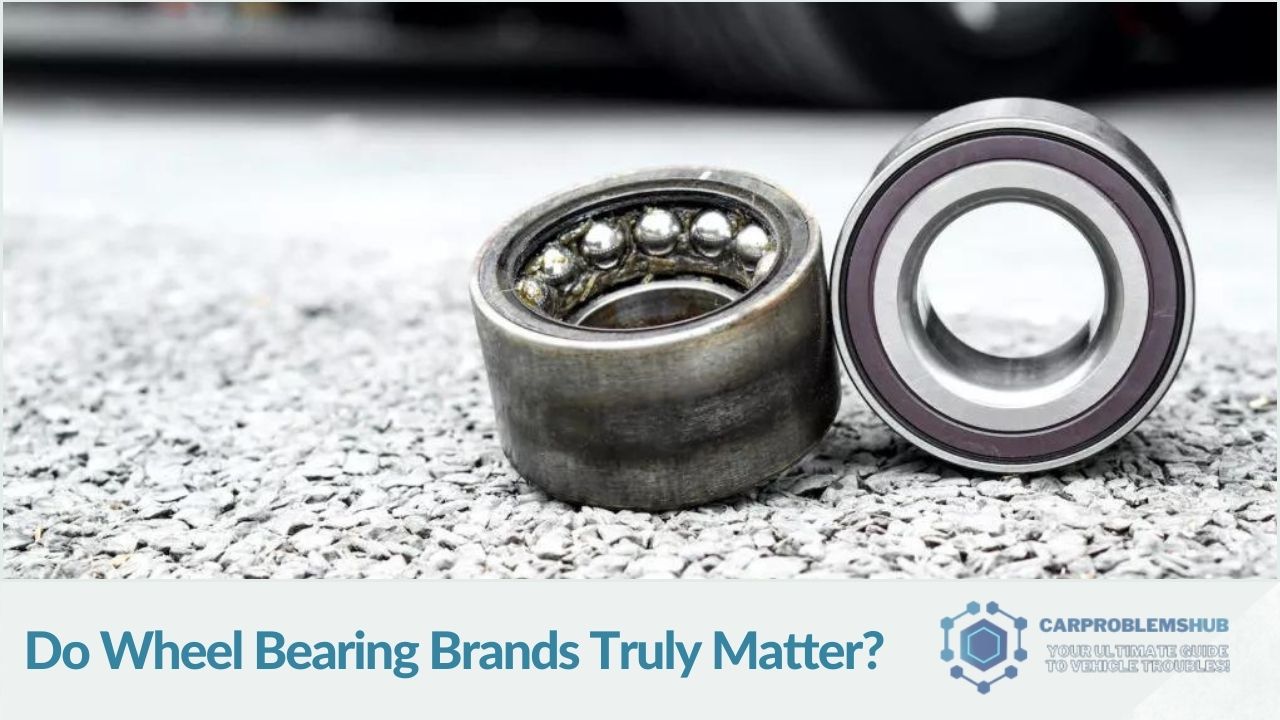
To address this question, one must consider two vital aspects: the significance of a well-known brand and the superiority of a branded product over its unbranded counterpart.
In response to the latter, a resounding ‘yes’ emerges. Unbranded bearings often display undesirable characteristics, such as vulnerability to bending or unsettling popping noises when surpassing the 30,000-mile mark. Some argue that the brand is inconsequential, placing the onus on proper installation. However, specific car models tend to pair seamlessly with particular bearing brands, like OEM bearings for VW and FAG for Audi.
Which Wheel Bearing Brands To Avoid?
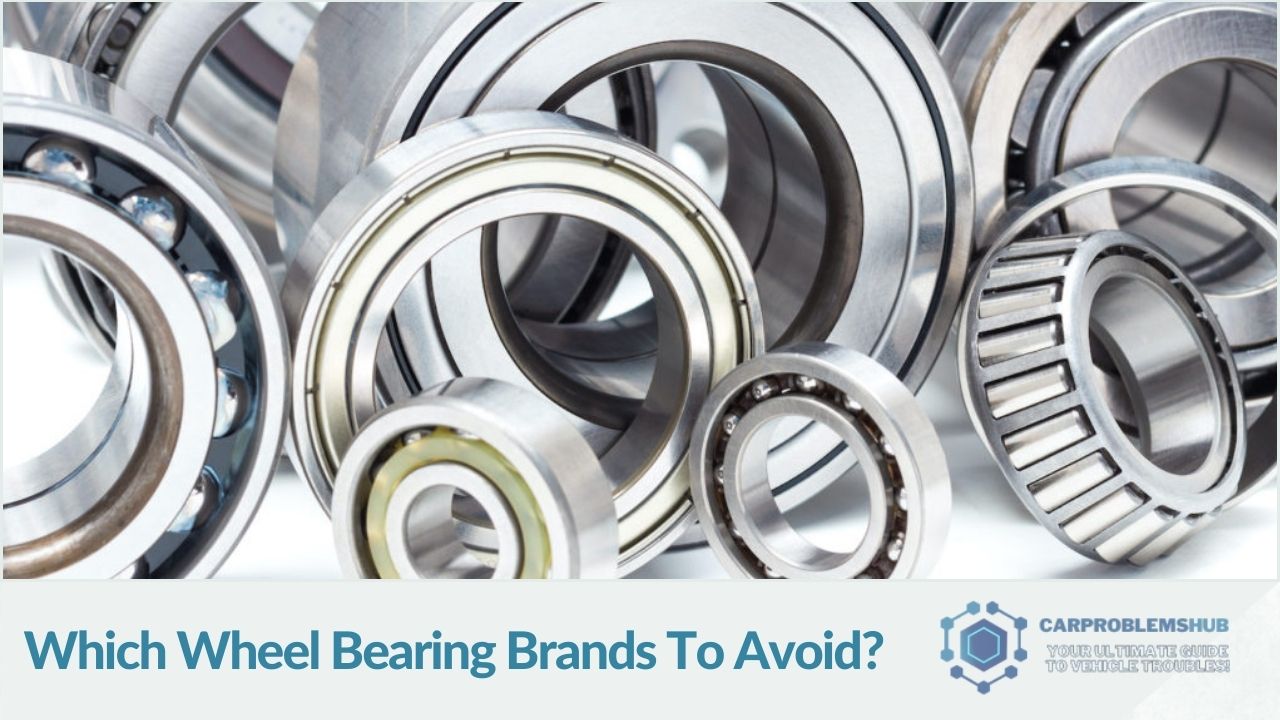
The journey through the wheel-bearing landscape uncovers a trail of dubious manufacturers and their subpar offerings. Beware of low-cost, poorly produced bearings, which are defective and often counterfeit.
- Timken: Despite its reputation as a top-tier brand, Timken occasionally stumbles, with the Timken HA590036 standing out as a notorious example. This product suffers from a problematic heating issue, causing ABS sensor malfunctions.
- Rolltec: Once a Swedish brand, Rolltec’s descent into the hands of Chinese owners compromised its quality. Bearings under this label tend to deteriorate rapidly at shockingly low mileage. Warranty claims add to the frustration while replacing these bearings becomes costly.
- MOOG: Enjoying a century-long presence in the market, MOOG boasts a commendable reputation. However, certain products, such as MOOG 513179 or MOOG 512518 bearings, disappoint. Online customer reviews often reveal shortcomings, including poor performance in high temperatures and a disappointingly short lifespan.
- Dorman: With a century of wheel bearing production, Dorman stumbles with the Dorman 950-001 model, known for its subpar build and gradual deterioration after eight months of use.
- WJB: Although manufactured in the USA, WJB bearings suffer from a lackluster reputation due to their early demise. Clanking noises during changes in the car’s pace or direction are telltale signs of their poor quality.
- EGT: Known for producing automobile components for buses and trucks, EGT’s bearings frequently display faults stemming from inconsistent build quality.
- GSP: As a Chinese brand, GSP churns out cheap, low-quality wheel bearings with a disappointingly short lifespan.
- Detroit Axle: While compatible with various vehicles, Detroit Axle’s bearings are known for their low quality and rapid wear, often failing within four months.
Superior Alternatives to The Avoidable Wheel Bearing Brands
Amidst the sea of subpar options, some brands shine brightly as beacons of reliability and quality:
- FAG, NTN, SKF, NSK, SNR Ruville, BTA: These brands offer good quality at reasonable prices, excelling in high-temperature environments and exhibiting remarkable durability.
- AM Autoparts: Known for reasonably priced auto accessories, this brand combines safety and reliability, backed by a 10-year warranty.
- MAC Auto Parts: Beyond ball bearings, this company manufactures various automotive parts, all while offering discounted prices and top-notch quality.
Several other reputable brands like Optimal, PEX and OE VW also deserve mention, with FAG even employing materials on par with OE standards.
The Ultimate Choice: FAG Reigns Supreme
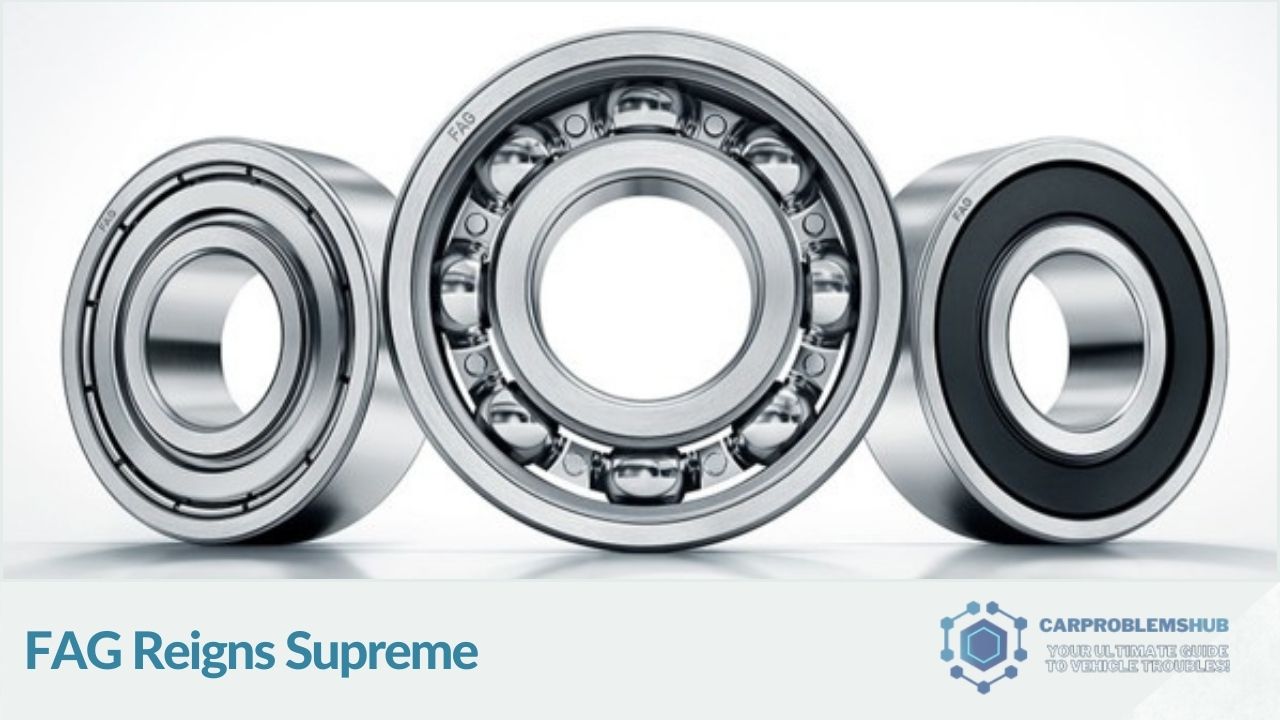
In the realm of industrial bearing manufacturing, FAG emerges as the undisputed champion. Its bearings can withstand the test of time, effortlessly crossing the 50,000-kilometer threshold and beyond without breaking a sweat. Opting for Timken bearings (the good ones) also promises a robust performance, lasting a staggering 100,000 kilometers without a hitch.
Are Chinese Wheel Bearings Trustworthy?
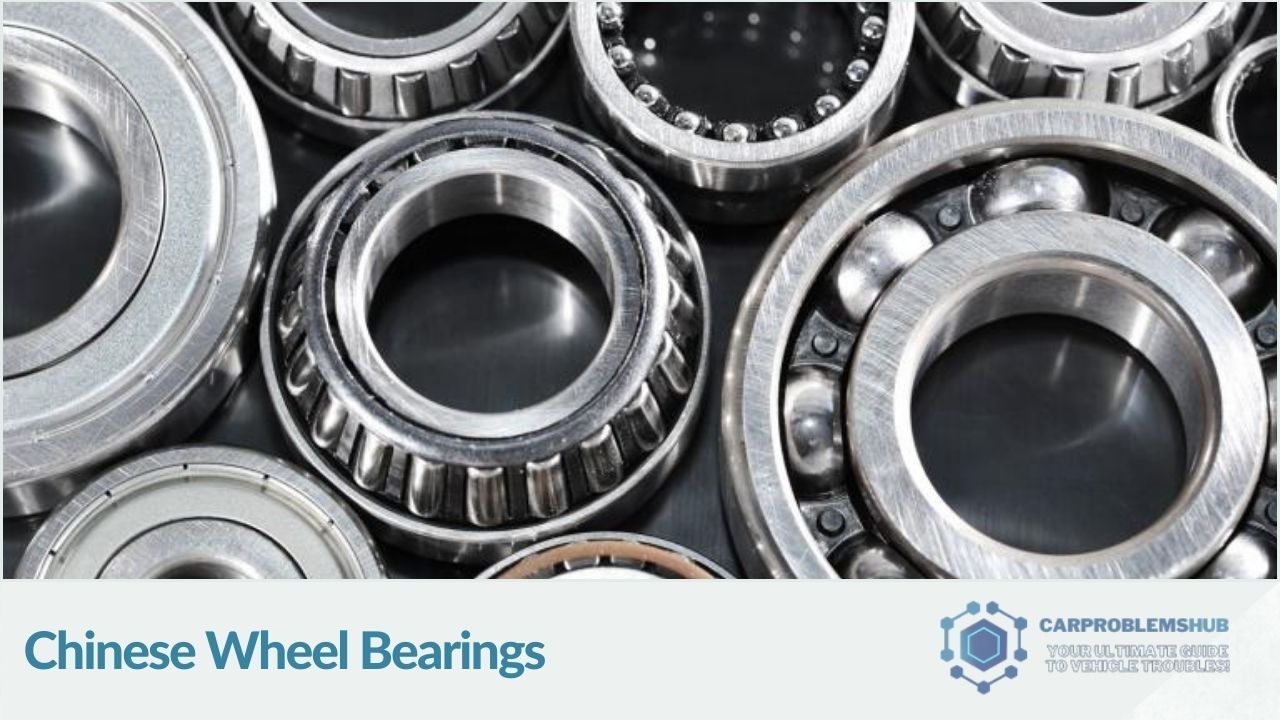
The web echoes with concerns regarding Chinese wheel bearings. The prevalence of cheap Chinese fakes only adds fuel to the fire, as many Chinese products struggle to meet quality standards. Steer clear of FHRC KOR-marked bearings, constructed from subpar materials, which tend to break quickly, often within a few miles.
Brands like ABS, AIC, EGT, GSP, Rolltec, Vaico, and Febi Bilstein should be cautiously approached, as they often fail to deliver the quality and durability expected from wheel bearings.
Knowing When to Replace Your Wheel Bearings
The lifespan varies depending on their quality. Regular quality bearings typically require replacement between 25,000 to 30,000 miles. On the other hand, sealed wheel bearings and hub assemblies often endure for 85,000 to 100,000 miles before necessitating replacement.
🚀Recommended article: Mazda 6 Years To Avoid: Essential Buyer’s Guide
Parting Thoughts
While it may seem that the market is flooded with subpar brands, this abundance ultimately benefits consumers. The limited selection of reputable brands simplifies the decision-making process. By conducting thorough research and seeking high-rated models within these trusted brands, one can ensure safety and a smooth ride. Regarding wheel bearings, never compromise on quality; your safety depends on it.
Was this page helpful?

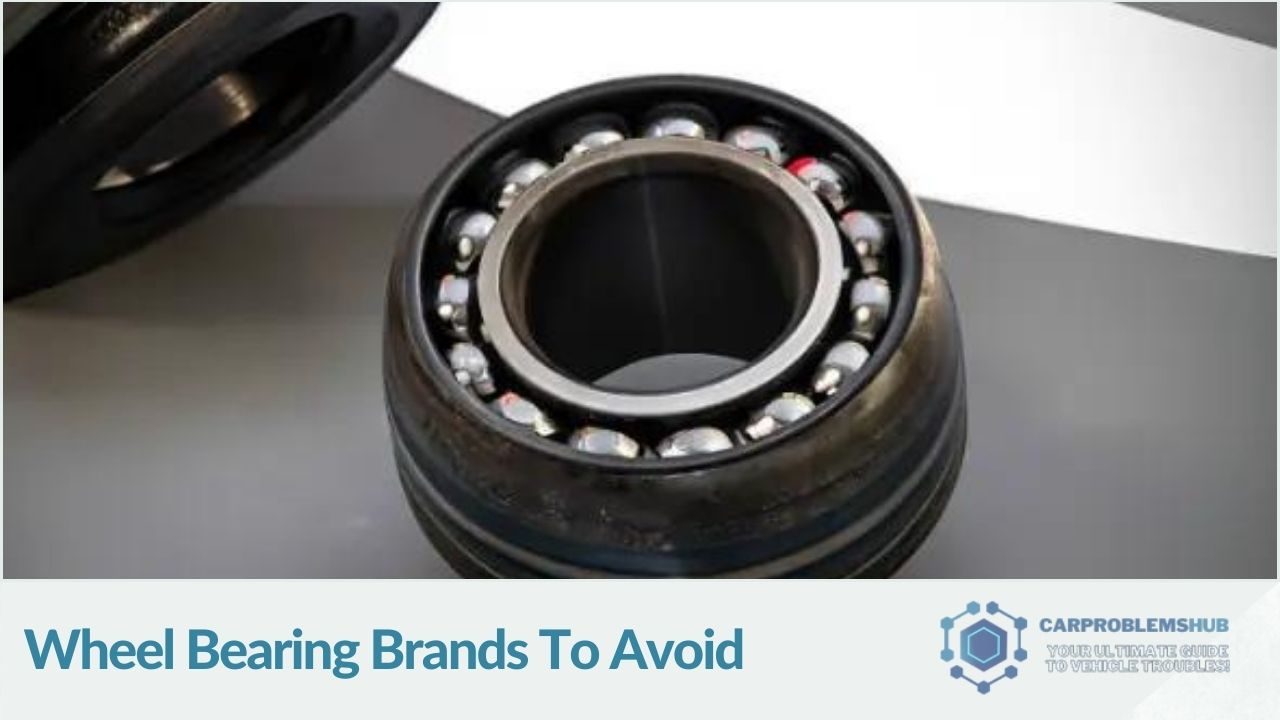
Similar Problems in Other Models
2024 Lucid Air Prices Go Down
GM's Big Road Network for Hands-Free Driving
DTC C0561-71 Vacuum Sensor Code on GM, GMC and Chevy
C1201 Code Toyota and Lexus (Causes and Solutions)
Chrysler Auto Start Stop Warning Light (Causes and Solutions)
2024 Ford Mustang GT: Digital Age Meets Classic Power
The 2024 Chevrolet Silverado 2500HD ZR2: An Off-Road Marvel
2024 Chevy Colorado ZR2 Bison: The Ultimate Off-Road Experience
The 2024 Lucid Air Sapphire Track Drive Experience
2024 Subaru Forester Review, Specs, Price, Release Date